by Heather Plett | Sep 16, 2014 | Community, Leadership
“Keep away from people who try to belittle your ambitions. Small people always do that, but the really great make you feel that you, too, can become great.” ~ Mark Twain
Tomorrow, after I teach a storytelling workshop for a national non-profit, I’ll be heading out on a special annual pilgrimage. A twelve hour road trip in good company will take me to the Black Hills of South Dakota, where I will gather once again with the women of Gather the Women.
This will be my third year in this circle of women. I can hardly wait to be with them again. When I am in this circle, I feel fed, held, honoured, encouraged, and strengthened. Even though we only see each other once a year, women in this circle have supported me through the grief of losing my mother, encouraged me in the growth of my business, and cheered for me every time I’ve done something brave.
But the primary reason why I keep going back?
They call me into my greatness.
These women want me to succeed. They want me to be bold, strong, and successful. They want me to make a mark in the world. They believe wholeheartedly in my work and cheer with their whole hearts when I do it well.
Why? Because MY work is OUR collective work. And because when I succeed, we ALL succeed.
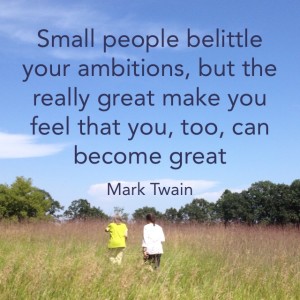 That’s the way it is when you surround yourself with powerful women who aren’t threatened by other people’s power. We succeed together and we leave the world a better place.
That’s the way it is when you surround yourself with powerful women who aren’t threatened by other people’s power. We succeed together and we leave the world a better place.
Are you longing to surround yourself with that kind of support?
I can help. What those women do for me, I want to do for you.
I want to call you into your greatness.
I want to cheer from the sidelines as you succeed. I want to nudge you into those places that feel scary but you know are right. I want to help you find your path.
How can I help you?
1. Come join Pathfinder Circle where you’ll find yourself surrounded by other women who are also daring to find their paths and step into their greatness. (It’s an online coaching circle that meets once a week for 8 weeks, starting September 30th.)
2. If you want to step into your greatness in your writing, sign up for Openhearted Writing Circle. (It’s a one-day online writing retreat, on October 4th, that will help you crack open your heart and pour it onto the page.)
3. If it’s one-on-one support you need, sign up for coaching. If you’re a leader/facilitator/teacher/coach, check out this offering.
Many years ago, when I was in my first leadership position, I realized that helping other people shine is just as good as shining yourself. Because we all benefit from each other’s glow.
Let me help you shine.
by Heather Plett | Sep 7, 2014 | art of hosting, Leadership
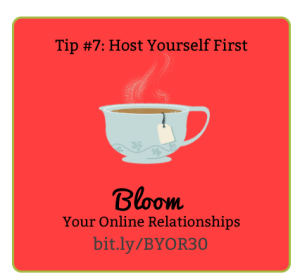 This post is part of the 30-Day Bloom Your Online Relationships Challenge. If you’d like to play along, you can sign up here (don’t worry — it’s FREE). We’re working through these small, powerful actions together and sharing our questions, learnings and experiences in a Facebook group. And we’d love to have you join us!
This post is part of the 30-Day Bloom Your Online Relationships Challenge. If you’d like to play along, you can sign up here (don’t worry — it’s FREE). We’re working through these small, powerful actions together and sharing our questions, learnings and experiences in a Facebook group. And we’d love to have you join us!
In the group facilitation work I do (in The Art of Hosting and Harvesting Meaningful Conversations), there’s a mantra that we repeat to ourselves long before we enter the room to host a retreat, facilitate a planning session, mediate a conflict, teach a class, etc. It’s simple – just three words…
Host yourself first.
What does it mean to “host yourself first”? It means, simply, that anything I am prepared to encounter once I walk into that room, I need to be prepared to encounter and host in myself first. In order to prepare myself for conflict, frustration, ego, fear, anger, weariness, envy, injustice, etc., I need to sit with myself, look into my own heart, bear witness to what I see there, and address it in whatever way I need to before I can do it for others. I can’t hide any of that stuff in the shadows, because what is hidden there tends to come out in ways I don’t want it to when I am under stress inside the room.
AND just as I am prepared to offer compassion, understanding, forgiveness, and resolution to anything that shows up in the room, I need to offer it to myself first. Only when I am present for myself and compassionate with myself will I be prepared to host with strength and courage.
To serve the world well, I need to serve myself first.
How do I do that? I do it by being honest with myself about my emotions, by engaging in the creative/spiritual practices that sustain and enrich me, by working things through in my journal or in a walk in the woods, by engaging in self-care, by getting support from the right people, and by claiming my own power and authority before I step into the room.
A few years ago, I was frustrated over what was happening on social media and I started questioning my presence there. I was getting dragged down by pettiness, I was feeling pressured into “doing social media marketing the way the pros tell me to”, I was wasting too much time in mindless surfing, and it was all feeling rather icky. I was suddenly painfully aware that I’d let go of my authentic voice and my sense of purpose.
And then the words I’d repeated so often in my in-person work came back to me… “Host yourself first.” Oh yeah… right.
So I asked myself, “what if I apply this to my presence on social media?” What if, when I’m on Facebook or Twitter, I take myself more seriously and consider myself to be “hosting meaningful conversations” the way I’m doing in retreats and in the classroom? What if – before I post anything – I check in with myself to test the emotions around what I’m posting and to make sure it’s coming from a place of authenticity and positivity rather than ego and marketing? What if, before I walk into the “room” on Facebook, I make sure I’m clear about my own values and passions and boundaries? How will that change the way I interact?
I started experimenting with it, and it didn’t take long to realize that my online presence had shifted. I was returning to my authentic voice. I wasn’t just posting for the sake of being popular or funny or to make a sale. I didn’t do anything just because the pros told me I should do it, but instead I did what flowed organically from who I was and how I wanted to be in the world.
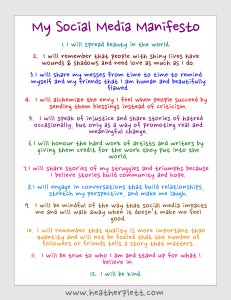 To solidify my commitment to hosting myself first online, I wrote my social media manifesto, naming all of my intentions in how I wanted to show up online. (Click on it to see it larger, or scroll to the bottom of the page.) I shared it and invited others to do the same.
To solidify my commitment to hosting myself first online, I wrote my social media manifesto, naming all of my intentions in how I wanted to show up online. (Click on it to see it larger, or scroll to the bottom of the page.) I shared it and invited others to do the same.
People started responding. Beautiful conversations resulted. New and deeper relationships grew. More people bought what I was selling because it was coming from the kind of authentic heart that people were longing for. My business grew and my social media reach grew, but more importantly my relationships grew.
How do you host yourself first?
Here are a few tips:
1. Do your personal work before you go online. Start with whatever creative/spiritual practice sustains and enriches you – art, meditation, journaling, dance, walking, etc.
2. Sit with your emotions before you broadcast them. Are you angry, sad, disappointed, confused? Sit with them for awhile, without judgement, and honour what is showing up. Ask yourself: “Is this is an emotion that is worth sharing (and perhaps asking for support for) or worth holding close to my heart?”
3. Ask yourself each day how you can be of service to the world. How can you serve the people in your social media stream – with uplifting posts, with humour, with invitations to justice and compassion, with offers to support them, with meaningful conversation, with reminders of how beautiful/kind/courageous/resilient they are?
4. Remind yourself that each person in your social media stream (including yourself) wants to be loved. When you think of it that way, then the things they do that annoy you are softened somewhat because you recognize in them a quest for attention and love.
5. Choose your own mantra that you repeat to yourself before you post or respond to anything. It can simply be a question: “Is this authentic to who I am?” or “Is this serving the world in a positive way?” Or a statement “I choose beauty.” or “I am a messenger of light.”
6. Think of yourself as a facilitator or host when you appear on social media. If this were a party or retreat you were hosting, what kind of atmosphere would you like to create? How would you like to make people feel about themselves? What kind of conversations do you want to facilitate?
7. Be as kind to yourself as you would be to anyone else you’re hosting. If you were hosting a party and someone was feeling down and discouraged, you’d sit next to them and listen to them and offer encouragement. If they were celebrating something, you’d celebrate with them. Offer the same kind of compassion, encouragement, and friendship to yourself. When you do that to yourself first, you’ll feel much stronger and more able to withstand the highs and lows of social media engagement.
8. Write your own social media manifesto. Start by journaling about all of the things that are important to you about how you want to engage online. Then write a list of your commitments. Share them or keep them to yourself – whatever feels right. If you want to, share them in the BYOR Facebook group.
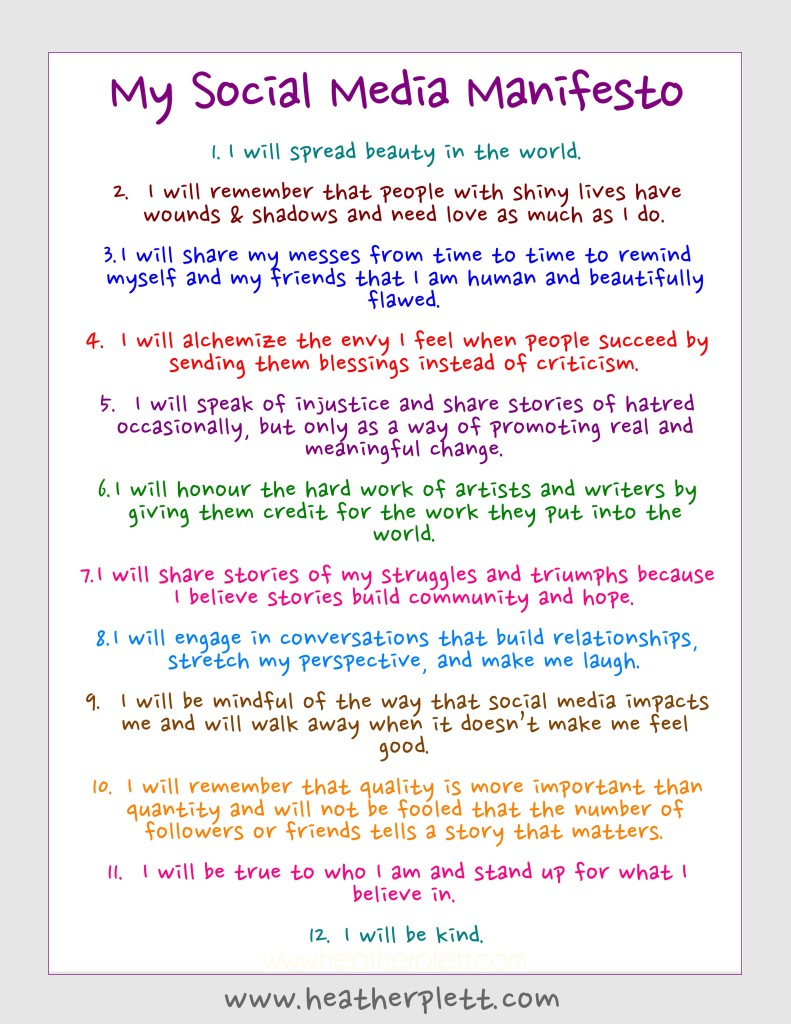
NOTE: When you’re done trying out today’s challenge, come visit us on Facebook and let us know how it went. What did you share? What was the response? Was it easy for you? Hard? No right or wrong answers here — we’re all just experimenting!
Image credit: Leyton Parker
by Heather Plett | Apr 15, 2014 | Uncategorized
 This post is not a completely thought-out post that feels clean in my brain like some of my posts do. It’s more like a conversation, a contemplation, a meandering through some questions that are on my heart.
This post is not a completely thought-out post that feels clean in my brain like some of my posts do. It’s more like a conversation, a contemplation, a meandering through some questions that are on my heart.
I’m on a quest to understand more deeply what it means to live authentically. Almost all of my work – my coaching, workshops, writing, and teaching – is centered in that quest. I want to live authentically and I want to help other people do the same. I delight in those beautiful moments when someone sitting in front of me – in a circle I’m hosting, in a coaching conversation, etc. – admits something that emerges from deep in the vulnerable recesses of their heart, and in that moment takes a step into authentic living.
But… even though I’ve done so much of my work in this realm, I still find myself wondering what it really means to live authentically, why it’s so hard for many of us to do so, and what conditions best support authentic living.
With those questions (and more) on my mind, here are some of my random thoughts on authenticity…
1. Authenticity is a journey, not a destination.
I don’t think you ever arrive at a city called “authentic” and then set up camp there. All of your life, you’ll be on a quest to discover who you are and how you can live in that truth more fully. You’ll try new things, test out new ways of being in relationship, realize that some of those things work for you and some don’t, and then you’ll try again. At the same time, there will always be forces working against your quest for authenticity. Those forces – your own fear of failure and rejection, the voices of your ancestors, the oppression of your lineage, the judgement intrinsic to your religion, etc. – will try to convince you that it’s much safer living behind a mask.
Carl Jung used the term “individuation” to define “the process by which individual beings are formed and differentiated [from other human beings]; in particular, it is the development of the psychological individual as a being distinct from the general, collective psychology.” Essentially, individuation is our quest for authenticity. As we mature into adulthood, we individuate, separating ourselves from the worldviews of our parents, the teachings of our childhood, the indoctrination of our religion, etc. There is a risk inherent in individuation, and some of us never work up the courage to take that risk. (Living with three teenagers has been an immense opportunity for me to learn about the individuation journey. Each time they disagree with me, I try to remind myself that they are learning who they are apart from me.)
2. The journey to authenticity is not a linear journey.
Sometimes you’ll grow in authenticity and courage, and then something will happen to make you feel unsafe, and you’ll shrink back behind a mask (or behind the safety of the rules of engagement you learned in your youth). It might be a change in a relationship, a big move that finds you in a place where you don’t feel at home, or some kind of trauma that halts your growth. Or sometimes you’ll be part of an authentic community and you’ll feel at home there, but the relationships will change, betrayal will happen, you’ll grow in ways others in your community haven’t, or people who model authentic leadership will move away and the community will cease to show up in an authentic way for each other. This is not failure – it’s simply a detour along the journey and an opportunity to learn new things about yourself and/or your community.
3. Authentic living is supported by spiritual practice.
Authenticity takes a lot of courage, resilience, and self-reflection, and these things are best supported by a spiritual practice of some kind. Spiritual practice helps you peel away the layers of ego to reveal the authentic self underneath. It also helps you stay grounded, letting the waves of self-doubt and fear of rejection pass over you without destroying you. In mindfulness practice, for example, you are taught to simply label your thoughts and feelings as such and let them pass without attachment. They are not wrong, they just are. Let them come and then release them. When I find myself getting lost in an ego-place, with fear of rejection threatening my quest for authenticity, I go for a long walk in the woods and that helps me return to ground zero where the ego has less of a hold on my life.
4. Living authentically is easier when you are supported by people who make you feel safe.
When you fear judgement or rejection, it’s very difficult to stand in your truth and live authentically. Your ego will do its best to convince you that your safety is more important than your authenticity. When you’re alone in a crowd of people participating in an activity that runs contrary to your values, for example, it’s hard to find the courage to do otherwise. If you can find at least one person in that crowd who will stand by you when you buck the trend, your chance of success goes up exponentially. Growing up in a religious context that did not support women in leadership, for example, I found it difficult to speak out against what I believed to be oppressive. It was easier to simply go along with it and stay silent. Once I discovered there were other people asking the same questions as I was, however, I was able to find my courage and walk away from (or challenge) those places that did not honour me as a leader. When we create places of safety for each other, we all have the opportunity to live more authentically.
5. Shame is the greatest barrier to authentic living.
When you let shame control you, you hide. You convince yourself that you are unworthy and that nobody will love you. You don’t dare take the risk to reveal your heart to other people because you’re certain that your secrets will scare them away. As Brene Brown teaches, in order to let go of shame, you need to become vulnerable, to dare to share your shame stories with people who make you feel safe.
6. Authenticity doesn’t mean you have to “bear your soul” to everyone.
Sometimes people mistakenly believe that being more authentic means they have to share their deepest, darkest secrets on Facebook for all the world to see, but that’s not the case. You have to be judicious with how and with whom you share your most tender stories. If a relationship doesn’t feel like a safe place to be vulnerable, inquire into that feeling and ask yourself if it’s simply fear holding you back or a true sense that the person cannot be trusted. Sometimes the fear is unrealistic (and the person is ready to wholeheartedly accept you no matter what) and sometimes it’s well-founded (and the person really isn’t ready to see you in a different light). When my mom was dying, for example, I struggled with whether or not I needed to be more authentic with her and share some of the ways my belief-system and worldview had changed. In the end, I decided that the risk of wounding her was too great and I preferred to simply be present for her in the most authentic way that I could be without causing unnecessary pain or a fracture in our relationship.
7. Sometimes what appears as inauthentic is actually about respect.
Just as you don’t need to bear your soul to everyone, it’s not always necessary to offend people for the sake of your own authenticity. When you travel globally, for example, you may find yourself in situations where you’ll need to conform to the culture you’re visiting rather than risk offending people. Just because you cover your head in a Muslim part of the world, for example, does not mean that you’re being inauthentic about your belief that women have the right to choose how they adorn their bodies. Showing respect for people’s culture helps break down barriers that might keep you from meaningful relationships.
8. There’s a fine line between authenticity and over-sharing for the sake of getting attention.
I’m not sure what to say about this one. I don’t want to judge people’s motivation for sharing their stories. I simply want to suggest that sometimes people believe that being an open book is about authenticity when it’s really a cry for attention. (It’s a fine line and it’s hard to know when you’ve crossed it. If you find yourself on Maury Povich talking about your sordid affair, you may have crossed it.) If you’re seeking attention, you need to work on your self-acceptance first and foremost. If your quest for authenticity overpowers the conversation and means that someone else is silenced, then you need to step back and re-examine what it is you’re looking for and why you’re sharing. If you’ve found a loving, supportive community, they may help you recognize what it is you’re seeking and what is the most healthy way of having your needs met.
9. We are all responsible for co-creating Circles of Grace where people can live authentically.
As a citizen of the world, you are responsible for serving those around you and offering them safe places for vulnerability and growth. We do this together, all of us seeking healing, seeking truth, seeking grace, and seeking community. We do this by withholding judgement and allowing others to be fully seen in their weakness and their strength. We do this by holding space for each other’s courage. We do this by showing up in our own authenticity and modeling it for each other.
10. Authentic living is risky but it’s worth it.
You may lose relationships when you choose to live more authentically. You may have to stand up to people who don’t honour your truth or who threaten your safety. You may even need to quit jobs or leave communities in your quest for authenticity. These risks are real and your fear of them is not unrealistic. That’s why many of us choose to stay safe. BUT you won’t feel fully alive unless you take the risk to step more fully into yourself. Your freedom and your happiness depend on your courage to be authentic.
What are your thoughts on authenticity? I’d love to hear them. Be part of the conversation by leaving a comment, or sharing this post (along with your own thoughts) on social media.
If you are seeking a more authentic life, consider joining Pathfinder Circle, starting May 8, 2014.
by Heather Plett | Mar 27, 2014 | Uncategorized
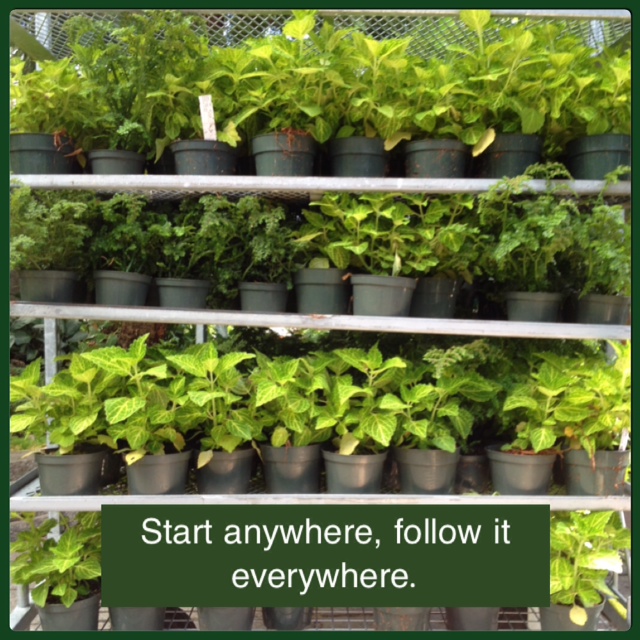 Yesterday I got an email from a woman asking me if I ever offered scholarships for my programs. She’d visited the Lead with Your Wild Heart page and said “When I clicked on your course I felt immediately that this is exactly what I need to do.” The cost was a challenge for her, though, so she took a chance and asked.
Yesterday I got an email from a woman asking me if I ever offered scholarships for my programs. She’d visited the Lead with Your Wild Heart page and said “When I clicked on your course I felt immediately that this is exactly what I need to do.” The cost was a challenge for her, though, so she took a chance and asked.
As soon as I saw her email, I knew I wanted to help her get what she needed. “Tell me what you can pay,” I said, “and it’s yours. You can pay more in the future if it feels possible, or you can pay it forward in some way.”
She sent me a beautiful note of appreciation and a little more of her story and… suddenly something shifted in me. I felt the Spirit-nudge. “I need to do this for more women,” I thought. “I want to be a citizen of a world where more women step into their courage and leadership potential, and so I need to support them in getting there.”
Within about half an hour (that’s how quickly I can work when I trust the Spirit’s nudge) I’d changed the sales page for Lead with Your Wild Heart to “pay what you can” and sent an email to my list to let them know of the change. Within minutes, sales started coming in and almost all of them included a note with a variation of “This is EXACTLY the right thing at EXACTLY the right time. I feel like you are up in my head and know what I need even before I do!”
Did I make a lot of money? No. Did I follow Spirit’s leading and nurture leadership and courage in women? YES! That’s good enough for me.
Then this morning something else happened. I hosted the first call for the brand new (free) Idea Incubator. Twenty-seven people came together to seed their tender ideas in the incubator, offer compost and soil for each others ideas, and marvel at the possibility of the global garden we can grow together. We started with a group circle where everyone introduced themselves and shared a brief check-in about where we’re feeling the trembling in our lives, and then we broke into small groups of 4 or 5 to help each other grow these ideas. It was a tender beginning, with a few technological challenges, but it was full of energy and potential. None of us quite know what we’re doing in this new space, but – in the words of Meg Wheatley – we’ve agreed to “start anywhere and follow it everywhere.”
After the call, I had to close my computer and leave the house. I felt a physical trembling all over my body, fueled partly from the stress of hosting something brand new on technology I’m not very familiar with, but mostly from the excitement and energy that was shared by these beautiful people spread across North America and reaching across the ocean to Europe. I took my journal to the green space at the Conservatory to process what had just happened. The workers at the conservatory were planting fresh plants and I knew I’d come to the right place for my personal de-briefing (hence the photo above).
Am I making any money from the Idea Incubator? No. Did I follow Spirit’s leading and create an environment where people feel nurtured and supported and where beautiful ideas can grow ? YES!
That’s good enough for me!
I am simply being faithful to the call and trusting that the rest will follow. The outcome is not my responsibility. The commitment is.
p.s. You can join Idea Incubator any time you want. And you can buy Lead with Your Wild Heart with whatever you feel you can pay.
by Heather Plett | Mar 21, 2014 | Uncategorized
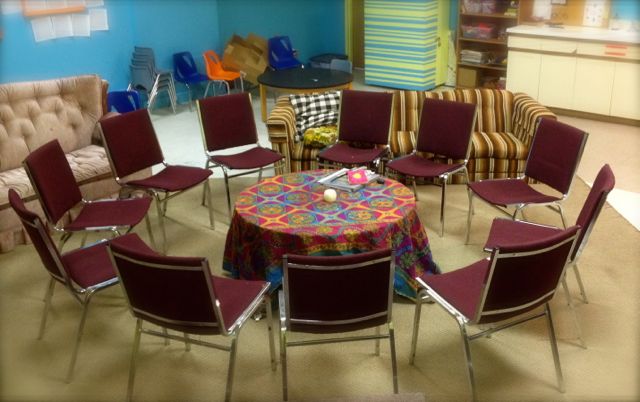 “We must come together in ways that respect the solitude of the soul, that avoid the unconscious violence we do when we try to save each other, that evoke our capacity to hold another life without dishonoring its mystery, never trying to coerce the other into meeting our own needs.” ― Parker J. Palmer, Let Your Life Speak
“We must come together in ways that respect the solitude of the soul, that avoid the unconscious violence we do when we try to save each other, that evoke our capacity to hold another life without dishonoring its mystery, never trying to coerce the other into meeting our own needs.” ― Parker J. Palmer, Let Your Life Speak
All around us, there is a hunger for belonging, a hunger for community, a hunger to be held in circles of grace where we can open our hearts and know that we will be treated tenderly and respectfully. Some of us have not yet awakened to that hunger, believing instead that we can go through life as independent, self-reliant souls. It’s there, though, hidden under the armour we’ve built up in our efforts to avoid being wounded.
To feed this hunger in the world, we need to create more places where people are fed. These are the places I call Circles of Grace.
A Circle of Grace is a place where people gather for meaningful conversation, for compassion, for support, for encouragement, and for growth. While in the circle, we do our best to extend grace to everyone there, including ourselves. We speak with openness and listen with intention. We make a commitment within the circle to be as authentic as we know how to be, and we welcome the same from others. We share, laugh, cry, grow, stretch, and tremble. Even when we disagree and conflict arises, we respond with compassion and open hearts and minds.
A Circle of Grace can be hosted as part of a retreat, it can be the frame for a weekly class (as I do with Creative Writing for Self-Discovery), it can be a way for your family to work through some difficult issues, it can be the way a community or church gathers regularly, and it can even be used in virtual gatherings (as I do with Openhearted Writing Circle).
How do you host a Circle of Grace? Here are some tips.
1. Create enough structure to hold the container, but enough flexibility to adapt to what wants to emerge. The best structure I know of can be found in PeerSpirit’s Circle Guidelines (which you can download for free). Sometimes it feels a little strange to bring structure into something that seems organic, but the structure helps you hold whatever is going on in the circle and helps you take conversation to a deeper place without falling into chaos. You can adapt the structure to what needs to happen in the space. For example, I always use a talking piece at the beginning of a gathering for check-in and at the end for check-out, so that each person has an opportunity to speak without interruption, and then I set it aside in between for less structured conversation.
2. Set guidelines and intentions so that everyone has a sense of their commitment while in circle. Guidelines help us feel more secure in the container because we know how to behave with each other and know what to expect from others. This is a sample of the guidelines and intentions I use when I host Openhearted Writing Circles:
- This is a circle of grace. It is a safe space for all of us, and to make it so, we will treat each other with kindness and grace.
- This is a confidential circle. Nothing that is shared here will leave the circle without the permission of the person speaking.
- This is a sharing circle. Each of us will be invited and encouraged to share questions, wisdom, writing, etc. Nobody will be pushed to share if they don’t feel ready, but everyone will be invited.
- This is a learning circle. We are all here to learn, and so no questions will be considered foolish and no wisdom shared will be silenced. We are all learners together, including the teacher.
- This circle belongs to each of us. Each of us is individually and collectively responsible for how we interact, what we share, and what we get out of this time together.
3. Keep an open mind and suspend judgement. It is important that everyone in the circle feels safe and accepted. This doesn’t mean that any kind of behaviour is acceptable (the guidelines and intentions help with that), but it means that people can share their stories, hurts, and wounds without fearing that they are being judged. Sometimes that will be hard to do (e.g. when someone shares an opinion or worldview that is very different from your own and you’re pretty sure they’re wrong) but it is crucial to extending grace in a meaningful way.
4. Don’t try to fix anyone. As Parker Palmer mentions in the above quote, we need to “avoid the unconscious violence we do when we try to save each other”. When others share the struggles they are dealing with, it is human nature to want to help them resolve those struggles, but more often than not, they are sharing in order to feel heard rather than to be fixed. According to Brene Brown in Daring Greatly, these efforts to fix each other are our defenses against vulnerability. We are afraid to see too much vulnerability in each other and in ourselves, and so we try to rush past the brokenness to a place where we feel more comfortable and struggles are resolved. In a Circle of Grace, we welcome vulnerability and we offer support without trying to fix.
5. Encourage people to ask for what they need. While we don’t rush in to fix things for people, we are happy – as hosts and co-creators of the circle – to respond to their requests if they ask for hugs, advice, encouragement, or silence. Create a space where people learn to be comfortable asking for what they need. This will probably take time (most of us have been taught to stifle our needs and not to extend trust to each other too quickly), but it’s worth the investment.
This is part of a document I am creating for people who wish to use Pathfinder in women’s circles and classrooms. It will be available as a free downloadable pdf. To be notified of its release, sign up for my newsletter (on the top right of this page).
If you wish to learn more about hosting circles, I encourage you to read The Circle Way by Christina Baldwin and Ann Linnea of PeerSpirit, or A Hidden Wholeness by Parker Palmer.
 That’s the way it is when you surround yourself with powerful women who aren’t threatened by other people’s power. We succeed together and we leave the world a better place.
That’s the way it is when you surround yourself with powerful women who aren’t threatened by other people’s power. We succeed together and we leave the world a better place.





